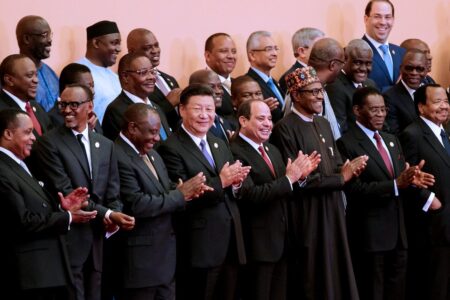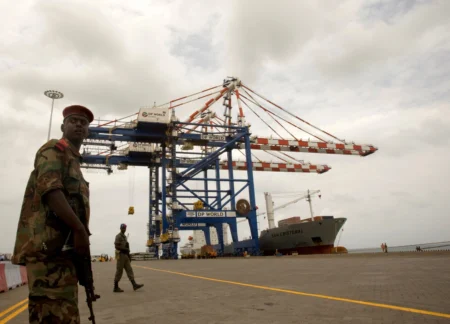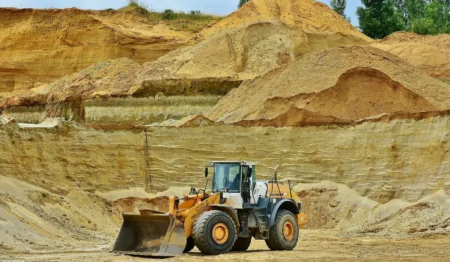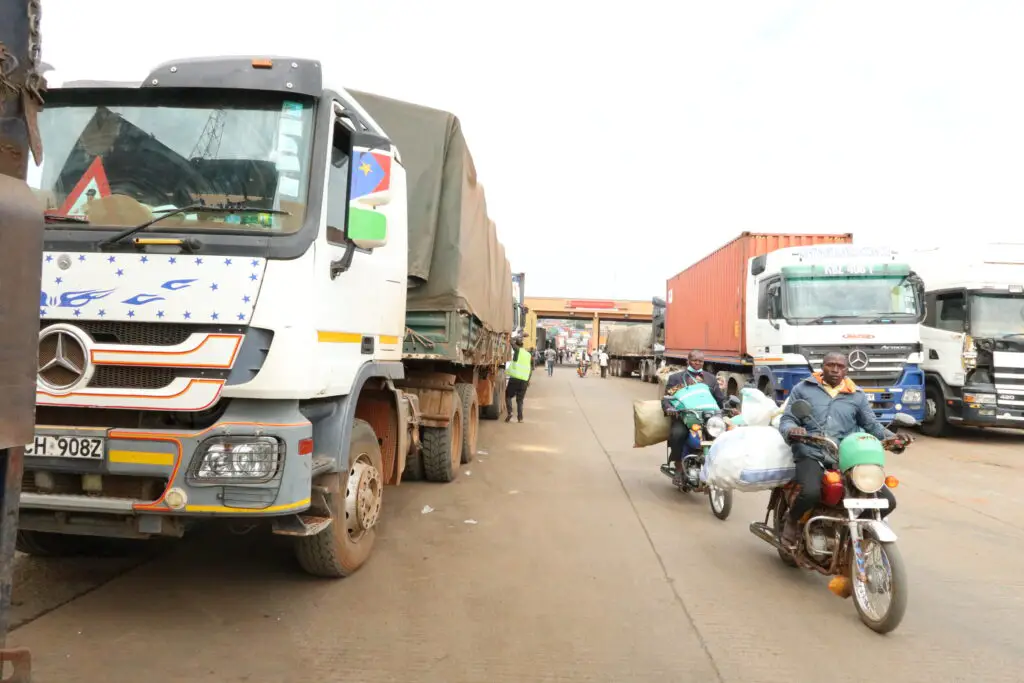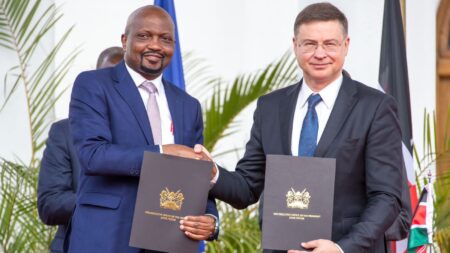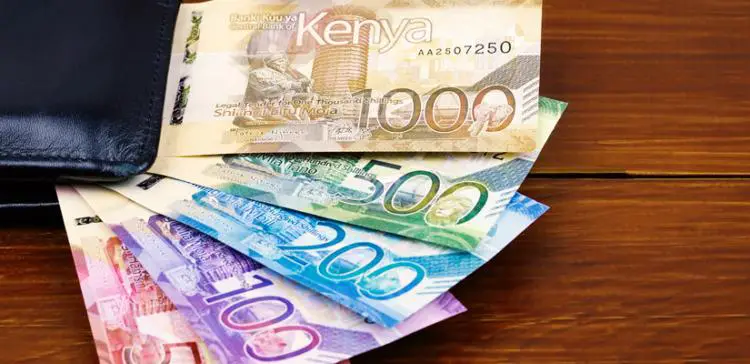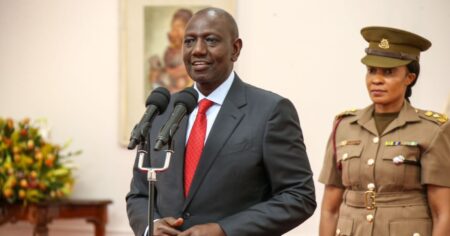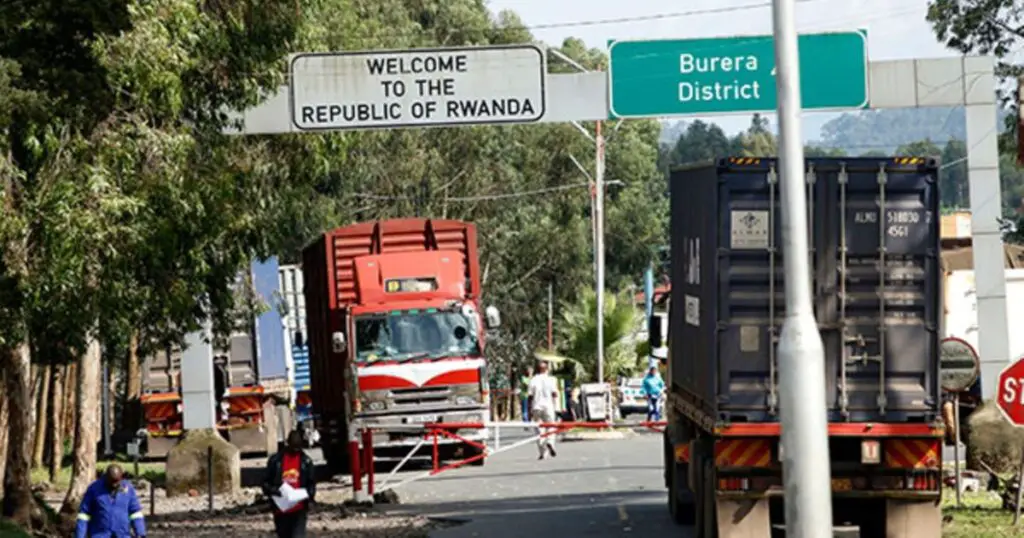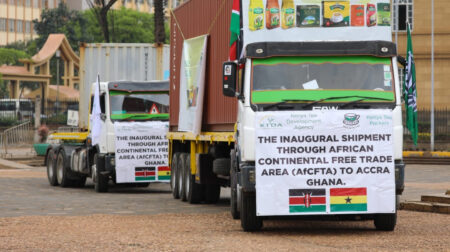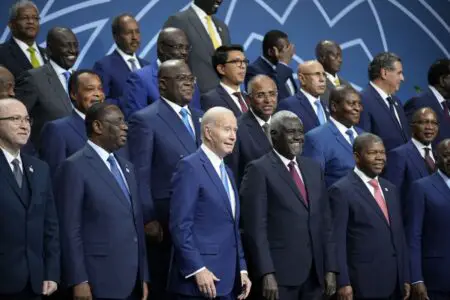- Africa’s new dawn: the rising role of digital and AI in agriculture
- Can Dangote Refinery Transform Africa Energy Ambition
- Gallup Survey: 80 per cent of Kenyan Workers Are Disengaged and Seek New Opportunities
- Madagascar Man Freed from 5KG Tumor After 15-Year Struggle
- How women in Africa are perceived and treated
- Sugar consumption in Kenya to Increase to 1.23 Million Tonnes
- Can Somalia and Turkey Oil deal Bring Change in Somaliland
- Remittances to Kenya dropped to $371.6 million in June, marking a six month low
Browsing: African Continental Free Trade Area (AfCFTA)
- For the first time, the China-Africa Economic and Trade Expo (CAETE) came to Africa, with Nairobi playing host last week.
- According to the Ministry of Commerce of the People’s Republic of China, the forum is expected to spread across the continent, with different countries hosting it in the coming years.
- The Asian country is keen to continue its influence and trade dominance on the African continent.
China has launched a charm offensive on Africa in renewed efforts to tighten its grip on the continent. The West has recently shown growing interest in political and investment corporations, and China is seen as keen to continue its influence on the continent.
For the first time, the China-Africa Economic and Trade Expo (CAETE) came to Africa, with Nairobi playing host last week. According to the Ministry of Commerce of the People’s Republic of China, it is expected to go around the continent, with …
- The EU is supporting efforts in the Horn of Africa that will boost regional economic integration and trade.
- Djibouti’s major trading partner countries include Ethiopia and troubled Somalia.
- Trade Mark Africa is helping implement a single window system which is already in use across EAC.
The EU has expressed its support for Djibouti’s plan to enhance connectivity within the Horn of Africa, a move that will promote trade with Ethiopia, one of the region’s biggest trade partners.
This collaboration is in sync with the African Alliance for e-commerce, a consortium comprising 18 member countries, dedicated to advancing the Single Window concept. This alignment adheres to the recommendations set forth by international institutions.
A pivotal project within the Alliance is the establishment of a Regional Single Window, designed to seamlessly interconnect all national platforms. The overarching goal is to streamline trade processes, bolstering the competitiveness of African nations on the global …
Africa is home to nearly all the valuable minerals that are essential to generating wealth, producing commodities, and advancing technology. Approximately 30 per cent of the world’s mineral reserves are in Africa, but most mineral-rich countries remain poor with little to celebrate. Some of the key minerals found in Africa include oil, diamonds, gold, silver, copper, cobalt, coal, iron ore, uranium, and platinum.…
The East African region has a long history of cooperation stretching back to 1900 when a Single Customs Collection point was established at Mombasa. Still, Non-Tariff Barriers remain a challenge to trade. The first instance of regional integration dates back to 1917 between Uganda and Kenya.…
- Kenya will progressively allow more imports from the EU into its market.
- An EU official terms the trade agreement with Africa’s seventh largest economy “a partnership of equals”.
- Under the Kenya-EU trade deal, Nairobi’s exports to European bloc will be tariff-free from day one.
A new Kenya-EU trade deal will see Nairobi’s exports to the European bloc enjoy tariff-free status from day one, while tariffs on EU exports will be liberalised over time but not on all products. The Kenya and European Union trade deal will provide new opportunities for Kenyan and European businesses, including the micro-, small- and medium-sized enterprises.
The two parties have concluded negotiations on the much awaited Economic Partnership Agreement. A new era of Kenya-EU trade ties will start in post-Brexit world where Brussels is exerting more influence across Africa.
European Commission Executive Vice-President and EU Trade Commissioner Valdis Dombrovskis and Cabinet Secretary of Kenya’s Ministry …
- The Kenyan shilling has fallen to a new low of 140.04 against the US dollar.
- Central Bank of Kenya data shows the unit is also losing to other major currencies including British Pound and Euro.
- Last year, the Kenyan shilling depreciated by about 7.5 per cent against the US dollar, the UAE dirham (7.5%), Saudi Riyal (7.4%) and the Chinese Yuan (3.1%), the Kenya Economic Survey 2023 shows.
As developing market currencies continue to suffer from the worldwide increase in interest rates, which is being spearheaded by the US Federal Reserve, the Kenyan Shilling has dropped to a historic low in relation to the US Dollar.
The Fed has increased the benchmark rate ten times in a row, or a total of five percentage points, since March of last year. In the last 40 years, these increases are the most abrupt. In an effort to combat US inflation, interest rates …
- With tightening monetary policies globally, many African economies are struggling with falling forex reserves.
- Low reserves have sent governments back to the drawing board strategising on how to survive future trends while balancing trade.
- With this, leaders and policymakers in Africa are engaging in the de-dollarisation conversation.
Kenya has sent a strong message to economies in Africa on the need to accelerate dedollarisation of cross-border trade, further amplifying the global conversation on reducing reliance on the US dollar as the main mode of payment.
For over a decade, China and Russia have sought to drastically lower their usage of the US Dollar in what is commonly referred as “dedollarisation”.
This is in a move intended at shielding their economies from possible trade-limiting US sanctions. The strategy also reduces their exposure to adverse effects of US economic and monetary policy, while also asserting global economic leadership.
China, Russia slowly cutting dollar
…- Standard Bank has developed the Africa Trade Barometer, a tool that blends qualitative and quantitative data across African markets.
- The Africa Trade Barometer is instrumental in solving access to information, a significant non-tariff barrier in Africa.
- It provides a near real-time view of trade openness, access to finance, and macroeconomic stability data among others.
Standard Bank, the biggest lender by assets across Africa, has thrown its weight behind the African Continental Free Trade Area (AfCFTA) saying it is a key opportunity to alleviate poverty, drive economic activity and achieve prosperity.
By eliminating trade barriers, AfCFTA aims to lift about 30 million Africans out of poverty by increasing incomes across the continent by seven percent by 2035. Once implemented, AfCFTA will be the world’s largest free trade area ever rolled out.
Standard Bank wants to power AfCFTA take-off
Recent global supply chain woes suffered in Africa illustrate the urgent need of …
- Rwanda and Kenya who have already started trading through the agreement.
- Mid-February, Tanzania also said it was ready to trade under the agreement.
- The implementation of AfCFTA is projected to increase intra-African trade significantly, especially in manufacturing.
Uganda has expressed readiness to join Kenya, Tanzania and Rwanda in trading under the African Continental Free Trade Area (AfCFTA) as the continent slowly embraces the pact.
The implementation of AfCFTA is projected to increase intra-African trade significantly, especially in manufacturing.
The share of intra-Africa exports to total global exports is expected to increase in Tanzania by 28 per cent, Uganda by 29 per cent, Rwanda by 33 per cent and Kenya by 43 per cent.
“As Ugandan private sector, we are ready to trade under the AfCFTA Guided Trade Initiative and follow our counterparts from Rwanda and Kenya who have already started trading through the agreement,” East African Business Council (EABC) Vice …
- AGOA has been a cornerstone of the U.S trade policy in Sub-Saharan Africa since the year 2000.
- The non-reciprocal trade preference programme that provides duty-free access to the U.S market.
- A range of manufactured goods and processed mineral products account for the bulk of exports.
African countries are pulling together to lobby the U.S Congress to approve the renewal of the Africa Growth and Opportunity Act (AGOA) this year.
Kenya and South Africa are leading the push to have a 10-year extension on the pact that allows a select number of African countries to export finished products to the US.
AGOA has been a cornerstone of the U.S trade policy in Sub-Saharan Africa since the year 2000.
The non-reciprocal trade preference programme that provides duty-free access to the U.S market, for about 40 eligible African countries, is set to expire in 2025.
Initially, it was intended to last 15 years …





